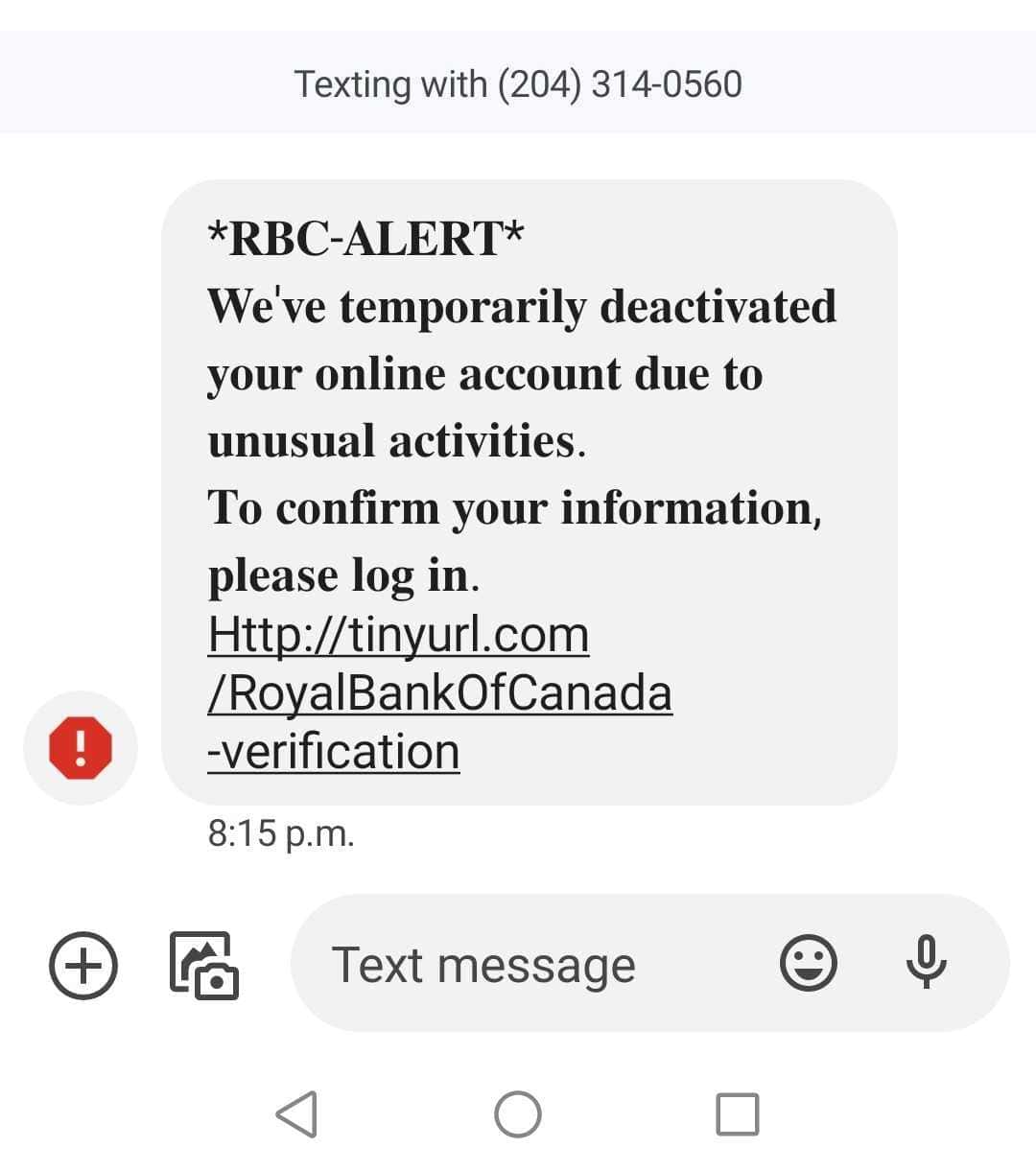Latest bank scam makes its rounds in southern Ontario
Published December 30, 2023 at 6:34 pm

As the festive season winds down and the new year days away, a bank text alerting Ontario residents of unusual account activity may bring out a mix of emotions, including unease. This heightened concern is linked to the latest circulating scam.
The text message claims to be from the Royal Bank of Canada (RBC). The message then informs the recipient that their account was temporarily deactivated, because of unusual activity.
The text further prompts the individual to confirm their information by logging in, using the provided link.
Some individuals who are not customers of RBC will rule the message out as a scam while others may Google the phone number to check its legitimacy. If the numbers don’t match with the one found online, users may recognize it as a scam.
In this case, the area code of the number is assigned to the province of Manitoba. However, even though the number may not match the online search, individuals could be duped into believing it’s from a different Canadian branch.

According to the Canadian Anti Fraud Centre (CAFC) this particular scam is known as “phishing.”
Fraudsters will use various tactics such as email and website name spoofing, while creating a sense of urgency for the victim’s response.
They may offer refunds or money, and make the process seem harmless.
Scammers will request victims to click on links, download attachments, or fill out forms online. They may also provide instructions to scan a QR code.
The CAFC says scammers may impersonate reputable institutions or companies including banks, online subscription services like Netflix or Amazon, businesses, and government departments.
“Sometimes if the links are visited, they can infect your computer with viruses or malware,” the CAFC adds.
Phishing crimes frequently result in identity theft or ransomware where scammers will demand large sums of money in exchange for granting you access back into your accounts or computer.
RBC is also warning its customers not to fall for this or other similar scams going around.
“Cyber criminals continue to send fraudulent SMS (text) messages masquerading as RBC. These texts are sent by fraudsters trying to trick people into providing personal or financial information,” the bank noted on its official website.
Instead, clients are urged to contact their bank directly via phone number or website to confirm any issues or questions related to their account.
INsauga's Editorial Standards and Policies








